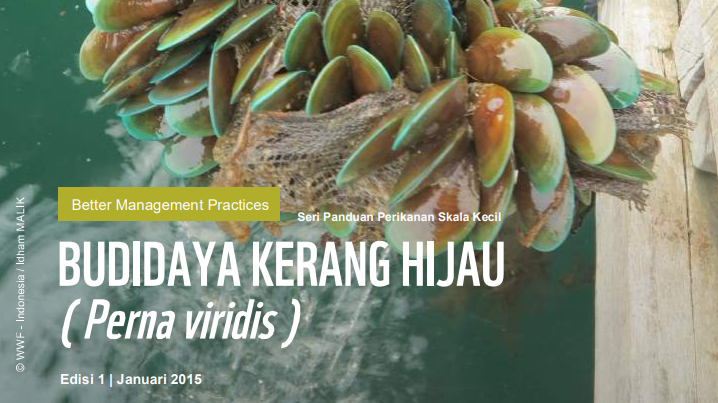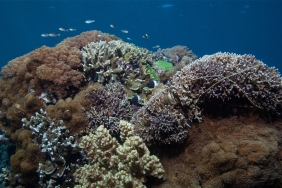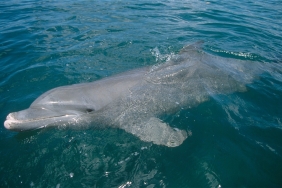BMP GREEN MUSSEL FARMING
Author: Idham Malik (Aquaculture Officer, WWF-Indonesia)
Kerang is currently one of the favorite foods for seafood lovers, both at home and abroad. Apart from its delicious taste, mussels have a nutritional content of 21.9% protein. Referring to statistics from the Ministry of Marine Affairs and Fisheries in 2011, the volume of shellfish production in Indonesia - for the types of blood clams, green clams, oysters, scallops, pearl clams, mussels, abalone, etc. - reached 54,801 tons; while in 2012 there was a decrease of 8%, so that the production volume only reached 50,460 tons. Despite the decline, the value of shellfish production in 2012 amounted to IDR 435,728,094. However, in practice, many mussels are obtained from fishing activities carried out in polluted areas, which in turn cause diseases and endanger human life.
Healthy mussels that do not harm the environment can be developed into export commodities. Not only useful as a source of human protein, shellfish can also be developed as raw materials for animal feed for broodstock fish and lobster commodities. In addition, mussels can also be utilized as biofilters, which are organisms that can improve water quality in integrative polyculture or Integrated Multi-Trophic Aquaculture (IMTA). The utilization of mussels as biofilters is one of the applications of sustainable fisheries patterns and Blue Economy principles.
In 2015, WWF-Indonesia compiled and launched a guide for small and medium scale Green Mussel aquaculture, titled "Better Management Practices (BMP) Green Mussel Aquaculture", which contains information on legality, social, technical cultivation, and environmental conservation.Guidelines referring to Aquaculture Stewardship Council(ASC) and Good Aquaculture Practices (CBIB), was developed through a process:
- Discussion with a number of stakeholders, including government, academics, and business actors;
- Survey to several Green Mussel aquaculture sites in Indonesia, such as Tanjung Kait (Tangerang) and Muara Angke (Jakarta);
- Literature study of Green Mussel aquaculture results in Indonesia
- Literature study of other research results.
This BMP is a flexible (living document), which will continue to be refined in accordance with developments in the field and input from relevant parties. With this "Green Mussel Aquaculture BMP", Green Mussel farmers can implement practical aquaculture practices, which will ultimately have a positive impact on business sustainability and environmental sustainability.





